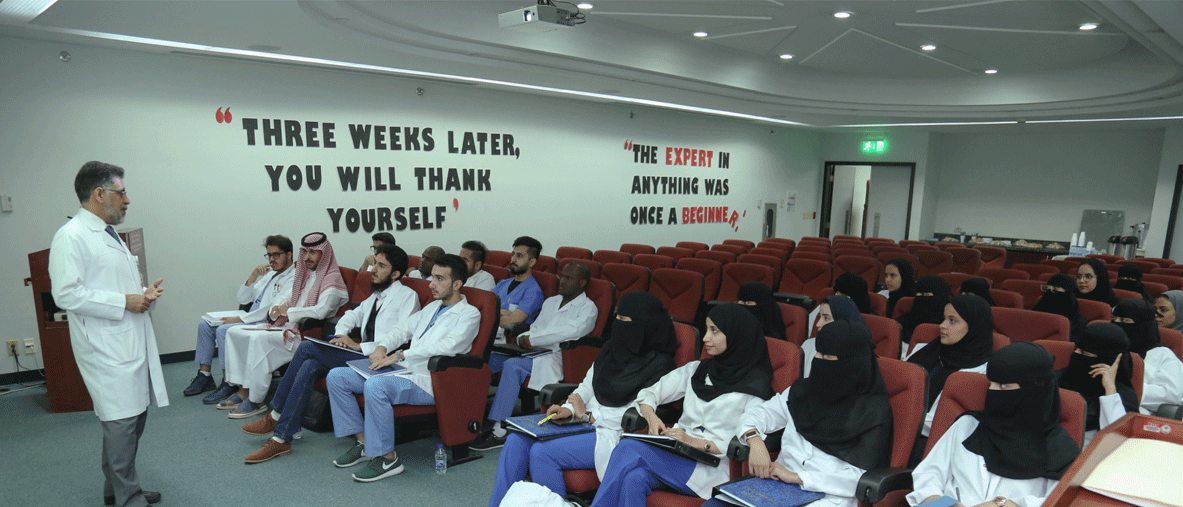KFSH&RC in Riyadh Launches the "Al-Razi" Training Program for University Students
General

16
July
The activities of the Al-Razi program for students of scientific disciplines being organized by King Faisal Specialist Hospital and Research Centre (KFSH&RC) in Riyadh kicked off on Sunday. Thirty male and females students are participating in the 10th edition of the program that aims to train students on practical skills and dealing in the actual scientific and research work environment. It also aims to give them an opportunity to demonstrate their technical skills.
Dr. Ali Alodaib, a senior research scientist at KFSH&RC-Riyadh and the supervisor of the “Al-Razi” training program, stated that the 4-week-long program that represented one of the channels of cooperation between the academia and the Research Centre will have lectures and workshops, in addition to practical training in laboratories under the supervision of the scientists of KFSH&RC-Riyadh. He further pointed out that the program would ensure that every trainee attains the maximum mastery of the necessary skills so as to achieve the program’s goal. This indicated that that at the end of the training program all trainees would be awarded certificates by KFSH&RC-Riyadh that will have a mention of the program’s duration and the type of training imparted.
Dr. Alodaib pointed out that the Al-Razi program is one of the summer programs organized by KFSH&RC-Riyadh in cooperation with the King Abdulaziz Foundation and its staff for honing the skills of talented students. The summer program also includes the Future Scientists program for students of the secondary level in the school in addition to the Ibn Sina Boys Program and a Talents Program. "These efforts help achieve the goals of KFSH&RC-Riyadh to build a society that bears the responsibilities of its youth and prepares them for a better future and provides them with different opportunities in the fields of medical science and research that are commensurate with the level of scientific and civilizational progress” as remarked by Dr. Alodaib.